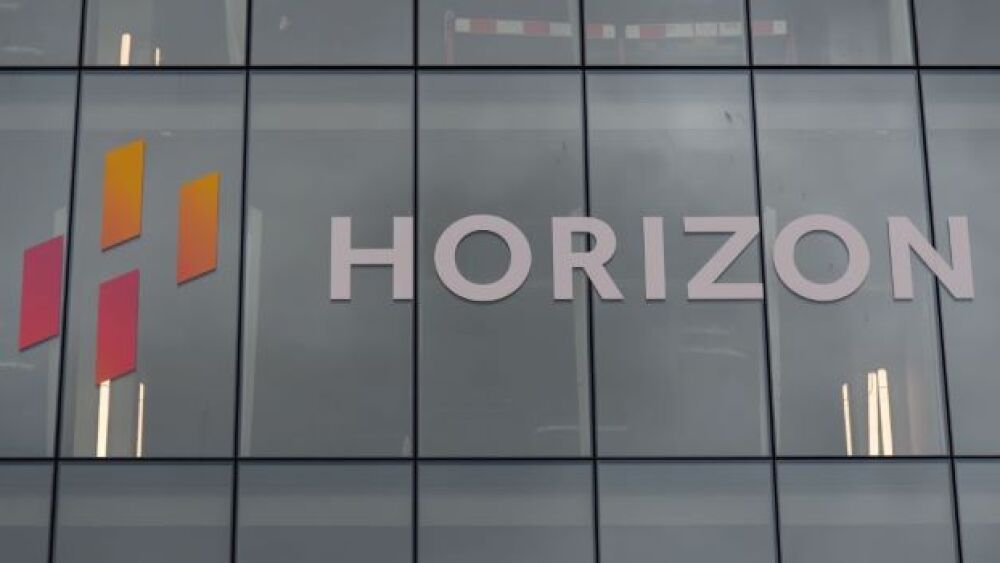Horizon was adding five new development programs for daxdilimab and dazodalibep. This brings the company’s pipeline to 27 development programs.
Artur Widak/NurPhoto via Getty Images
Horizon Therapeutics updated its new development programs at its Virtual R&D Day. Of note, the company was adding five new development programs for daxdilimab (HZN-7734) and dazodalibep (HZN-4920). This brings the company’s pipeline to 27 development programs.
“Horizon’s unique combination of commercial execution, proven and disciplined business development and strong R&D capabilities transformed us into one of the fastest-growing, profitable biotechnology companies in the industry,” said Tim Walbert, Chairman, President and Chief Executive Officer of Horizon. “Today’s announcement of new development programs, new disease areas and increased investment in our drug discovery activity further diversifies our portfolio and positions us for long-term growth.”
Daxdilimab is a fully human monoclonal antibody that targets immunoglobulin-like transcript 7 (ILT7), which promotes the destruction of plasmacytoid dendritic cells (pDCs). It is currently in a Phase II study for systemic lupus erythematosus. Horizon also plans to evaluate the drug for alopecia areata, dermatomyositis, discoid lupus erythematosus, and lupus nephritis.
Dazodalipeb is a fusion protein binding CD40L on T cells. It blocks their interaction with CD40-expressing B cells. This drug is now in Phase II studies for Sjogren’s syndrome, rheumatoid arthritis and kidney transplant rejection. The company plans to eventually add focal segmental glomerulosclerosis to its development program for the drug.
They expect all five programs, which are Phase II trials, to launch in 2022.
“Our mission is to serve patients with rare, autoimmune and severe inflammatory diseases and in R&D, we are doing that by putting our focus on understanding and impacting the critical biological pathways underlying these diseases,” said Elizabeth H.Z. Thompson, Executive Vice President, Research and Development, Horizon. “The new development programs we’ve announced with daxdilimab and dazodalibep not only each represent an intriguing biological approach, but more importantly, the potential to develop new treatment options for diseases with significant unmet need.”
On September 23, Horizon announced results from a retrospective analysis of its pivotal Phase II/II N-Momentum clinical trial. The pivotal Phase II/III N-MOmentum trial showed Uplizna may offer durable efficacy and a favorable safety profile for African Americans with NMOSD.
Uplizna is the first and only drug approved by the U.S. Food and Drug Administration that is an anti-CD19 B-cell depleting humanized monoclonal antibody for adults with anti-aquaporin-4 (AQP4) antibody positive NMOSD.
NMOSD is an umbrella term for neuromyelitis optica (NMO) and related syndromes. It is a rare, severe, relapsing, neuroinflammatory autoimmune disease that affects the optic nerve and spinal cord in addition to the brain and brain stem.
About 80% of all NMOSD patients test positive for anti-AQP4 antibodies. AQP4-IgG bind primarily to astrocytes in the central nervous system, which causes an escalating immune response, resulting in the formation of lesions and death of astrocytes, which are specialized immune cells in the brain and CNS.
“NMOSD is a complex and often unpredictable disease that can be challenging to manage, especially in subpopulations that are disproportionally and more severely affected,” said Quinn Dinh, Vice President, International Medical Affairs and Pipeline Launch Strategy, Horizon. “Ongoing research with Uplizna can help inform treatment decisions in the clinic as physicians work to reduce the debilitating effects of this disease for their patients.”





